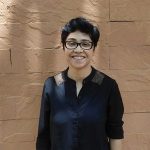Course Information
- 2023-24
- CGI213
- 5-Year B.A., LL.B. (Hons.), 3-Year LL.B. (Hons.), Master's Programme in Public Policy
- IV, V
- Mar 2024
- Elective Course
Freedom has been the most profoundly consequential concept in the history of the modern world. First articulated by the actors of the Atlantic revolutions, it has undergone many shifts and turns in the last 250 years. From a republican ideal of constituting popular self-government, freedom has been entrenched as a legal limit to state actions in most liberal democracies today. The idea has been invoked each time to redefine the relationship between the individual and the collective, the state and the market, and the majority and the minority. More than ever, it is imperative to revisit the idea of freedom today given how global phenomena like climate crisis and the rise of artificial intelligence are limiting human choices. So much so, that we have begun asking what does it fundamentally mean to be human?
Starting with its European and American legacies, the course will enquire how freedom has been understood and thought by artists, educationists, philosophers and politicians in Asian and African contexts. Anticolonial figures such as Jawaharlal Nehru, Kwame Nkrumah and Gamal Abdel Nasser interpreted freedom as national liberation and further widened it to an internationalist vision of collective solidarity. Another related line of thinking disconnected freedom from the nation-state project and delineated it as the individual’s capacity of self-realization. Mohandas Gandhi, Rabindranath Tagore, BR Ambedkar and Mohammad Iqbal are the chief protagonists of this thought tradition who productively engaged with intellectuals spanning the West and the East including WEB Du Bois, John Dewey, Albert Einstein, Romain Rolland and Okakura Tenshin. How were these new ideas of freedom developed in twentieth century Asia and Africa linked to its early iterations in Europe and America? In what ways did the anti-colonial and post-colonial thinkers draw upon and mark a break from its thinking in the West? Questions of nationalism, internationalism and cosmopolitanism, race and caste, religion and science, tradition and modernity, and truth and the human subject shaped these interlocutions charged with political and wartime urgency. Combining history, law, religion, literature and political studies, this course will explore how the global idea of freedom was thought in different and divergent local contexts and languages as an essential and constitutive capacity for self-making and world-making.


